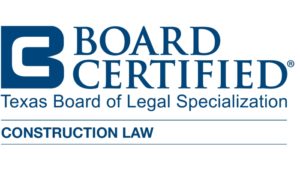Welcome to Lovein Ribman, where we understand the complexities of property division in Texas family law. Property division is a critical aspect of divorce proceedings, often requiring careful navigation to ensure fair and equitable outcomes for all parties involved. As experienced family law attorneys, we recognize the importance of protecting our clients’ rights and interests when it comes to dividing marital assets and debts. With our deep understanding of Texas property division laws and our commitment to personalized representation, we strive to guide our clients through this process with compassion, integrity, and unwavering dedication. Whether you’re facing a high-net-worth divorce or seeking to protect your financial interests, Lovein Ribman is here to provide the expert legal counsel and advocacy you need to achieve a favorable resolution.
CHARACTERIZATION OF PROPERTY
Property division encompasses four primary areas: community property, separate property, commingled property, and marital debts. Understanding these classifications is essential for achieving a fair and equitable distribution of property. The following is a brief discussion of each category of property.
Community Property
- Community property refers to assets and income acquired by either spouse during the marriage, regardless of who earned or acquired them.
- Examples of community property include:
- Income earned by either spouse during the marriage, including wages, salaries, and bonuses.
- Real estate acquired during the marriage, such as the family home or investment properties.
- Vehicles purchased using funds earned during the marriage.
- Retirement accounts, such as 401(k) plans and pensions, accumulated during the marriage.
- Investments, stocks, and bonds acquired with marital funds.
- Community property is subject to division between spouses upon divorce, typically with the goal of achieving a fair and equitable distribution.
Separate Property
- Separate property consists of assets owned by one spouse before the marriage or acquired individually during the marriage through gifts, inheritances, or personal injury settlements.
- Examples of separate property include:
- Property owned by one spouse before the marriage, such as a house or savings account.
- Inheritances received by one spouse from a deceased relative during the marriage.
- Gifts given directly to one spouse, such as jewelry or cash.
- Personal injury settlements or judgments awarded to one spouse for damages.
- Unlike community property, separate property is typically not subject to division upon divorce and remains the sole property of the owning spouse.
Commingled Property
- Commingled property refers to assets that have become mixed or combined with both community and separate property, making it challenging to determine their classification.
- Examples of commingled property include:
- Using funds from a joint bank account (community property) to pay off a mortgage on a separately owned property (separate property).
- Depositing an inheritance (separate property) into a joint investment account (community property).
- Using income earned during the marriage (community property) to renovate or improve a separately owned property (separate property).
- Determining the classification of commingled property can be complex and may require tracing the source of funds or contributions to establish ownership rights.
Marital Debts
- Marital debts are obligations incurred by either spouse during the marriage and are considered part of the overall property division process.
- Examples of marital debts include:
- Mortgages on jointly owned properties or real estate acquired during the marriage.
- Car loans used to purchase vehicles during the marriage.
- Credit card debt accumulated for household expenses or shared purchases.
- Student loans taken out to finance education expenses incurred during the marriage.
- Marital debts are typically divided between spouses along with other assets and liabilities during the divorce process.
Understanding the classification of property in Texas family law is essential for ensuring a fair and equitable division of assets and debts during divorce proceedings. At Lovein Ribman, our experienced family law attorneys are here to provide guidance and advocacy to protect your rights and interests throughout the property division process.
PROPERTY DIVISION
Factors Considered
In Texas, when dividing property in a divorce, courts consider various factors to ensure a fair and equitable distribution. While Texas is a community property state, which generally means that property acquired during the marriage is considered community property and subject to equal division, courts may deviate from a strict 50/50 split based on certain factors. Here’s a comprehensive list of factors a Texas court may consider in dividing property during a divorce:
Character of Property:
- The court will classify property as either community property (acquired during the marriage) or separate property (owned before marriage or acquired by gift or inheritance).
Length of the Marriage:
- The duration of the marriage may influence the division of assets, with longer marriages often resulting in more equal distribution of property.
Age and Health of Each Spouse:
- The court may consider the age and health of each spouse when dividing property, especially if one spouse has significant health issues or limited earning capacity.
Financial Contributions:
- Contributions made by each spouse to the acquisition, maintenance, or improvement of property may be taken into account. This includes financial contributions as well as non-financial contributions such as homemaking or caregiving.
Earning Capacity:
- The court may assess each spouse’s earning capacity, including education, job skills, and career prospects, when determining the division of property.
Custodial Responsibilities:
- If one spouse has primary custody of the children, the court may award them a larger share of the marital property to provide for the children’s needs.
Fault in the Divorce:
- While Texas is a no-fault divorce state, if one spouse’s misconduct (such as infidelity or wasteful dissipation of assets) led to the breakdown of the marriage, the court may consider this when dividing property.
Tax Consequences:
- The court may take into account the tax implications of dividing certain assets, such as retirement accounts or real estate, to ensure a fair distribution.
Debts and Liabilities:
- The court will consider the allocation of marital debts and liabilities, ensuring that both spouses share responsibility for debts incurred during the marriage.
Future Needs and Financial Stability:
- The court may also consider the future needs and financial stability of each spouse, especially if one spouse requires additional support due to health issues or other circumstances.
Pre-Marital Agreements:
- If the spouses have a valid prenuptial or postnuptial agreement outlining the division of property, the court will generally adhere to the terms of the agreement.
Any Other Relevant Factors:
- The court has discretion to consider any other factors it deems relevant to achieve a fair and just division of property in light of the specific circumstances of the case.
These factors are considered on a case-by-case basis, and the court’s ultimate goal is to achieve a division of property that is fair and equitable to both spouses.
High net worth and high asset divorces often necessitate involvement of various professionals such as appraisers, forensic accountants, and financial experts to accurately assess the value of complex estates. In situations where multiple assets are in contention and one party lacks full knowledge of the financial landscape, these experts are extremely important.
The complexities of such divorces can escalate when there is a disparity in how each spouse values the other’s contributions, even amid significant challenges faced as a couple. While one spouse may not independently possess a high net worth, there could be non-monetary forms of value that are challenging to assess. This complexity often leads to increased litigation as both parties seek an equitable division of assets in line with their respective contributions and entitlements.
Stocks
Stock options granted as employee benefits are considered assets requiring valuation in divorce. To determine the characterization of a stock portfolio, specific information and documentation are crucial: (1) Information from the Employer; (2) Plan Administrator Contact Information; (3) Stock Account Number; (4) Copy of the Restricted Stock Benefit Plan; and (5) Documentation Reflecting Vesting Schedule.
In Texas, the division and characterization of restricted stock in divorce depends on various scenarios:
Awarded and Vested Before Marriage: Typically considered separate property.
Awarded Before Marriage but Vested During Marriage: Part community property, part separate property.
Awarded and Vested During Marriage: Entirely considered community property.
Awarded During Marriage but Vested After Divorce: Part community property, part separate property.
Bylaws and agreements may apply to the non-involved spouse. Understanding any signed agreements, buy-sell agreements, and transfer restrictions is crucial for a fair division of assets in divorce involving stock options or restricted stock awards. Each situation is unique, requiring careful consideration of specific agreements and plans.
Retirement Accounts
Similar to stocks, the division of retirement accounts in divorce requires careful consideration. Even if a retirement plan began before the marriage, contributions and interest accrued during the marriage may be considered community property. Disputes may arise when both spouses had individual retirement accounts (IRAs) before marriage, leading to disagreements on the value of contributions and interest during the marital period.
401(k): Dividing a 401(k) plan is complex, especially when considering factors like loans against the account. Evaluating both the account balance and loan balance separately is crucial for equitable division. It’s important to note that the value of 401(k) funds doesn’t directly translate to a cash amount due to tax implications and penalties for early withdrawal.
IRA: Individual Retirement Accounts (IRAs) come in various types, each subject to eligibility criteria and annual contribution limits. Whether traditional, SEP, SIMPLE, or Roth, IRAs offer potential tax benefits but also carry significant tax penalties for early withdrawals, except in specific circumstances defined by exceptions.
Reimbursement Claims
During divorce property division in Texas, the court considers three marital estates: each spouse’s separate estate and the community estate. The presumption of community property requires parties to substantiate any reimbursement claims. The Texas Family Code Section 3.402 details various reimbursement claims, including:
Payment of Unsecured Liabilities: Reimbursement for covering unsecured liabilities of another marital estate.
Inadequate Compensation for Business Effort: Reimbursement for insufficient compensation for time and effort in a business controlled by a spouse.
Reduction of Principal on Debt Secured by Separate Property: Reimbursement for reducing principal on debt secured by a lien on separate property.
Reduction of Principal on Debt for Capital Improvements: Reimbursement for reducing principal on debt secured by a lien for property capital improvements.
Capital Improvements to Property: Reimbursement for capital improvements made to property.
Reduction of Unsecured Debt by the Community Estate: Reimbursement for the community estate’s reduction of unsecured debt incurred by a spouse’s separate estate.
Substantiating these claims involves presenting evidence, testimony, or engaging experts.
Businesses
Dividing the value of a closely owned business is a complex aspect of divorce proceedings. If the business is separate property, it remains with the owning spouse. However, when deemed community property, shared contributions during the marriage create joint ownership. Even separate businesses may have community property interests due to shared investments and a spouse’s significant role in growth.
Valuation is crucial, especially for buyout considerations. Tax returns, financial statements, and appraisers are employed. Appraisers use the Market Approach (evaluating market sales), Asset Approach (assessing assets and liabilities), or Income Approach (valuing ongoing business, including goodwill). Discounts may apply based on minority ownership or market conditions.
Goodwill is vital, with personal goodwill as separate property and commercial goodwill as community property. Understanding these complexities is essential for a fair resolution in divorce proceedings involving business valuation.
Trusts
In Texas, a trust establishes a distinctive relationship between a trustee and beneficiaries. The person creating the trust (settlor) transfers legal title to a trustee, who holds the property for the benefit of beneficiaries. Trusts become pertinent in divorces in three scenarios:
Dispute Over Funding with Community Property: Disagreements may arise when community property is used to fund a trust. If a married settlor transfers community property into a trust for a third party, disputes may lead to claims of fraud or constructive fraud by the other spouse, seeking to reclaim the property or pursue a money judgment.
Income Interest Under the Trust Document: Issues can arise if a spouse is an income beneficiary of a trust. Determining whether trust distributions during marriage are separate or community property becomes crucial. The trust’s nature, whether from a will or gift, influences arguments, with some viewing distributions as inheritance or gifts, while others consider trust income as community property.
Remainder Interest Under the Trust Document: If a spouse is a remainder beneficiary of a trust, the property may be considered beyond the divorce court’s reach. Ambiguity arises when the trust specifies that property will be distributed free of trust. In Texas, it’s unclear whether such distributions are separate or community property. Arguments may favor the assets as part of the bequest or gift, while counter-arguments may assert that distributed trust income is community property acquired during the marriage.
Can we work out an agreement on our own?
Yes. Parties undergoing divorce can utilize an “Agreement Incident to Divorce” (AID) as a flexible tool. This document, drafted alongside a divorce decree, allows spouses to establish terms regarding property division, liabilities, and spousal maintenance. Subject to modification or disavowal until finalization, the court reviews the AID and if terms are deemed just and equitable, they become binding and part of the final decree. If unjust, the court may request revisions or schedule a contested hearing. To be enforceable, the AID must be in writing, signed, and filed with the court overseeing divorce proceedings, meeting requirements even if announced verbally in open court and recorded.
Property Division in a divorce can be a daunting task regardless of the size of your estate.















